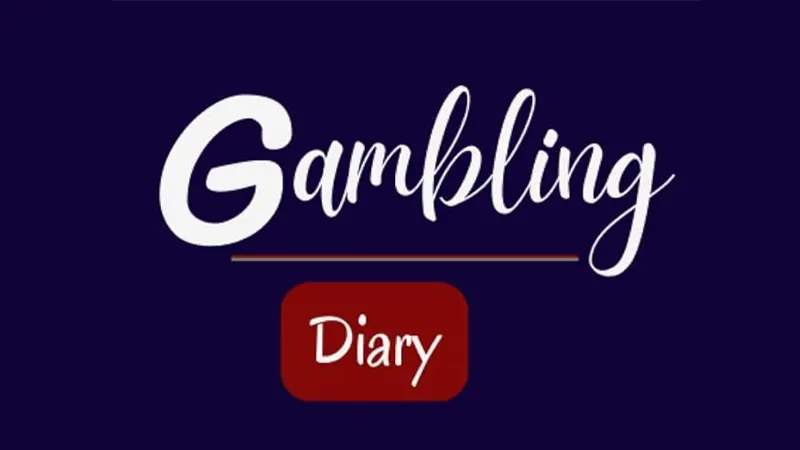Many players go broke not because of bad games, but because they gamble recklessly without any control or structure. The difference between casual entertainment and financial disaster often lies in having a well-thought-out plan. Planning doesn’t just limit your spending – it significantly reduces psychological pressure and helps maintain emotional stability during both winning and losing streaks.
At 82 Lottery, we’ve observed that players who develop structured gambling schedules enjoy longer, safer, and more enjoyable experiences. A proper plan transforms gambling from a potentially destructive habit into a controlled form of entertainment that fits seamlessly into your lifestyle.
What Is Gambling Planning and How Does It Differ from Simple Budget Limits?
True gambling planning goes far beyond saying “I’ll play for 2 hours” or “I’ll bet $500.” It involves detailed allocation: which days to play, for how long, and at what stakes. This systematic approach helps separate gambling from other life activities, preventing it from consuming your entire time and mental energy.
Unlike simple budget setting, structured planning creates boundaries that protect both your finances and your well-being. It establishes gambling as a scheduled activity rather than an impulsive behavior that can spiral out of control.
Benefits of Daily and Weekly Gambling Plans
Implementing a structured gambling schedule offers numerous advantages that extend beyond financial protection. Time control prevents extended sessions that lead to fatigue and poor decision-making. When you’re mentally sharp, you make better choices about when to continue playing and when to stop.

Planning also eliminates the dangerous practice of “binge gambling” to recover losses. Instead of playing desperately to chase losses, you maintain consistent, controlled sessions that reduce emotional stress and preserve your bankroll over time. This disciplined approach builds sustainable gambling habits that can last for years without causing financial or personal problems.
Detailed Steps for Creating Your Gambling Plan
Step 1: Determine Your Weekly Gambling Budget
Start by identifying the total amount you can afford to lose in a week without affecting your essential expenses. This must be money you can genuinely afford to lose – not funds earmarked for rent, groceries, or other necessities. For example, if you can comfortably allocate $300 per week for entertainment, this becomes your maximum gambling budget.
Step 2: Divide Your Budget Across Multiple Days
Rather than risking everything in one session, distribute your weekly budget across several days. Using the $300 example, you might allocate $50 per day for six days, keeping one day completely gambling-free. This distribution prevents the catastrophic loss of your entire weekly budget in a single unlucky session.

Step 3: Set Win-Loss-Time Limits for Each Session
Establish clear parameters for each gambling session. For instance, stop playing when you’ve won 30% of your daily budget, lost 20%, or reached your 1-2 hour time limit – whichever comes first. Set specific hours for gambling, such as evening only, and avoid late-night sessions that can lead to poor judgment.
Step 4: Document Your Plan and Track Your Progress
Write down your plan and use an app or notebook to monitor your results. Record your starting bankroll, ending bankroll, number of games played, and your emotional state during each session. This documentation helps you identify patterns, recognize when you’re deviating from your plan, and spot developing problems before they become serious.
Real-World Example from 82 Lottery
One of our successful players implemented a weekly plan that involved gambling six days per week with one complete rest day. They consistently stopped when reaching their predetermined win or loss limits, never exceeding their time boundaries. The result was remarkable: their bankroll lasted significantly longer, they avoided devastating losses, and their overall mental state remained stable and positive.
This systematic approach transformed their gambling from a source of stress into genuine entertainment. They reported feeling more in control and enjoying their gambling sessions more because they weren’t constantly worried about losing money they couldn’t afford.
Common Planning Mistakes to Avoid
Many players make critical errors when creating their gambling plans. Setting unrealistic profit goals compared to your bankroll sets you up for disappointment and risky behavior. Another frequent mistake is failing to stop when you reach your predetermined limits, whether winning or losing.

Consolidating multiple days’ budgets into a single gambling session is particularly dangerous, as it removes the safety net of distributed risk. Finally, forgetting to document your results prevents you from learning from your experiences and adjusting your strategy.
Secrets to Effective Planning
Honesty with yourself when recording results is crucial – self-deception undermines the entire system. Set reasonable win-loss targets, typically 10-30% of your session bankroll, rather than unrealistic goals that encourage reckless behavior.
Always include at least one gambling-free day per week to “decompress” and maintain perspective. Most importantly, view your gambling money as entertainment expenses – losing is normal and expected, not a personal failure.
Integrating Advanced Bankroll Management
Combine your planning with the 5% rule: never risk more than 5% of your session bankroll on any single bet. Implement strict stop-loss protocols by stopping immediately when you reach your predetermined loss limit. Set win goals and have the discipline to stop when you achieve them, even if you feel like you’re “on a roll.”
Understanding these principles helps you avoid Common Mistakes Make You Loose in Betting such as chasing losses, betting beyond your means, or playing when emotionally compromised. Proper planning addresses these issues systematically rather than relying on willpower alone.
[Image Caption: A flowchart showing decision points for continuing or stopping gambling sessions] Image Name: gambling_decision_flowchart.jpg Alt Text: Decision flowchart for gambling showing when to continue playing versus when to stop based on limits
Professional Advice from 82 Lottery
Plans only work when you actually follow them. Don’t let emotions override your carefully considered strategy. The excitement of winning or the frustration of losing can tempt you to abandon your plan, but this is precisely when discipline matters most.

Review and adjust your plan weekly based on your results and changing circumstances. What works for one month might need modification as your situation evolves. Flexibility within structure is key to long-term success.
Building Sustainable Gambling Habits
Creating daily and weekly gambling plans transforms gambling from a potentially destructive activity into a controlled, enjoyable form of entertainment. This systematic approach helps you maintain control over your finances, avoid the devastating “bust-out” scenarios that plague undisciplined players, and treat online casino gaming as the entertainment it should be.
The key to long-term success lies not in winning big, but in losing small and playing smart. With proper planning, you can enjoy gambling for years without the financial stress and emotional turmoil that destroy so many players. Remember: the goal isn’t to get rich from gambling, but to have fun while keeping your losses manageable and your finances secure.
A well-structured gambling plan is your best defense against the psychological traps and financial pitfalls that claim countless players every day. By treating gambling as a planned activity rather than an impulsive behavior, you join the ranks of successful recreational gamblers who enjoy their hobby without sacrificing their financial security or peace of mind.


